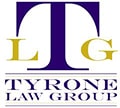Litigation is the process by which parties seek the intervention of a court or other authority to resolve a disagreement they cannot decide on their own.
While the phrase might refer to alternative conflict resolution processes like mediation or arbitration, estate disputes almost usually end up in court.
Whether you are a beneficiary, personal representative, or another interested party, an estate litigation attorney can help you understand your choices and resolve your issue.
Common disagreements that result in estate litigation:
- Disputes over the legitimacy of the will or trust.
- Claims that the personal representative or trustee violated their fiduciary duty
- Disputes over creditors’ claims against the estate.
- Claims of fraud or undue influence
- Guardianship concerns.
As previously stated, estate litigation happens when disagreements develop, and the parties cannot settle them. They may be unable to resolve them for various reasons, including personal issues, which are prevalent in estate disputes.
The estate documentation may be vague or inconsistent. An heir could have been suddenly disinherited or mistreated.
Whatever the cause, litigation may be the best way to resolve the conflict. An estate litigation attorney will help you analyze your case and explain the possibilities.
What happens if you can’t resolve a dispute?
If your issue involves a will, you must go through the probate process. The process consists of filing the will and then administering it under the supervision of the probate court.
Because you are already in court, you do not need to file a separate lawsuit, even if the matter might be handled separately. This helps to simplify the lawsuit procedure.
When a trust is involved, the procedure becomes more challenging. Trusts are administered independently of the probate process and without the oversight of a court.
As a result, if you want to attack a specific component of the trust or how it is run, you must launch a separate action.
Is there litigation if there is no will or trust?
If the decedent died without a will or trust, you must still go through probate. The first stage will be to designate a personal representative, which can lead to conflict.
Once the personal representative is selected, intestate succession statutes will disperse the estate’s assets.
As a result, disagreements over who obtains estate assets are highly unusual; nonetheless, litigation might still emerge over many other components of the procedure, such as the following:
- Whether the personal representative is appropriately carrying out their obligations.
- If there is proper notification to all heirs and creditors.
- Identification and valuation of estate assets.
- The handling of creditor claims
As a result, if there is any dispute, it will most likely occur during the probate process.
Is settlement an option when you opt for litigation?
Yes, you can settle your case. The chance of settlement, however, will be determined by a range of variables. For example, the personal representative or trustee may be unable to approve a settlement if it violates the conditions of the will or trust.
The reality is that resolution in an estate lawsuit might be more complex than in other disputes due to the number of parties involved and the limits of estate planning instruments.
This is one of the reasons you should consult with an estate litigation attorney early in the process; they will help you determine whether settlement is a viable option or if litigation is the only way to resolve the disagreement.
How to navigate estate litigation
Defend the will
You should defend the will if you believe it is just and legal. Estate litigation can take several months or longer. Therefore, it is best to hire an experienced lawyer as early in the process as feasible. The Wills, Estates, and Succession Act (WESA) establishes the requirements for a valid will, which include:
To form a will, you must be at least 19 years old, mentally competent in writing it, and sign it with two or more witnesses.
These requirements should be addressed first when determining the validity of a will, as it may be declared void owing to other conditions.
If a will does not follow the statutory formalities or was prepared while the will-maker was incapacitated or under undue influence, it may damage your entitlements.
Know the wishes of your loved one.
Engage in end-of-life conversations with your loved ones throughout their lives. Accidents and abrupt diseases can occur at any time.
Know where your loved one’s will, trust, and other estate documents are stored. Ensure that he or she engages an expert estate lawyer to write the estate plan and that the plan is updated correctly after significant events, such as a spouse’s death, the sale of a business, or the birth of a child.
Understand the timeframes
There are several time constraints for filing estate-related court actions. Depending on your claim, it could be as little as 180 days after probate is granted.
If you are concerned that a will is invalid or that you have been disinherited, you should contact a lawyer straight away, as courts seldom, if ever, allow for actions filed outside of the appropriate time frame.
If you wait too long, you risk losing your entitlement.
Don’t sign as a witness.
If you or your spouse are being gifted something in a will, you should not sign as a witness. The best approach is for the will-maker to have independent witnesses present to corroborate their signature. If you witness a will in which you also inherit, your gift may be void.
If you need assistance in preparing your estate plan or have questions regarding challenging or defending the validity of a will, contact a reputable wills and trust attorney Upper Marlboro and have them help you.
As a rule of thumb, ensure that the professional you hire is experienced and knows what they are doing. You don’t want someone who causes more chaos than is already there.
